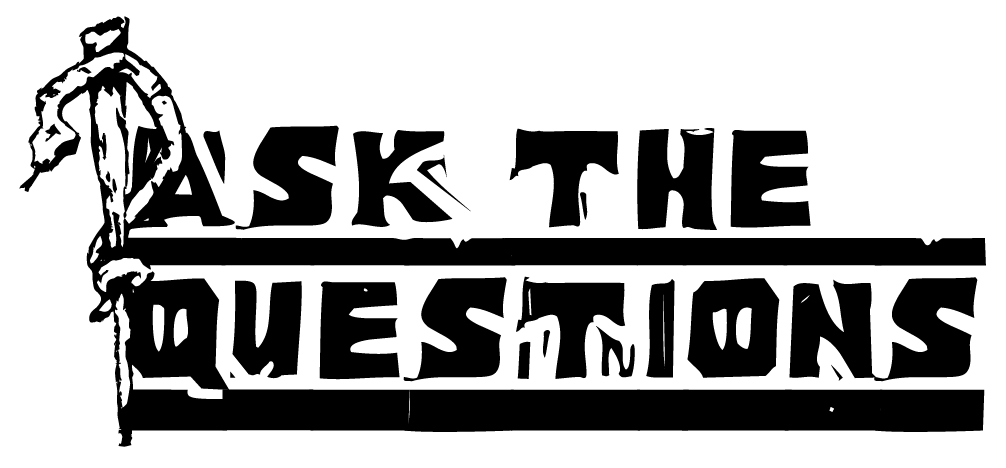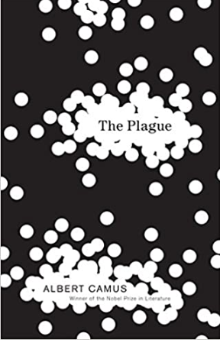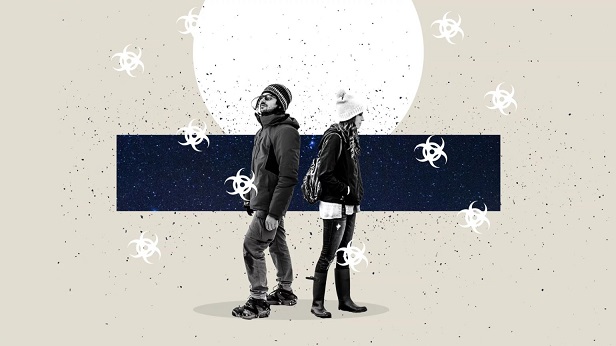 This year’s Core Book logo uses a woodcut style to portray the classic image of the Rod of Asclepius. The Rod of Asclepius serves as a powerful and global image of healing and medicine, with the origins of this symbol stretching back to Greek mythology. For Core Book readers in 2020 the threat of viral disease remains a pressing and disruptive reality for all of us due to the ongoing spread of coronavirus. And yet, the threat of infectious disease and the burden of illness is truly an ancient and enduring human reality. No generation, culture, or people has escaped the seemingly capricious spread of disease. As we read Albert Camus’ The Plague, this image reminds us to “ask the questions” and grapple with the enduring human struggle to make sense of pandemics, resilience in the face of loss and loneliness, the hope of healing and love, and the call to serve others and live faithfully amidst the suffering God allows for us.
This year’s Core Book logo uses a woodcut style to portray the classic image of the Rod of Asclepius. The Rod of Asclepius serves as a powerful and global image of healing and medicine, with the origins of this symbol stretching back to Greek mythology. For Core Book readers in 2020 the threat of viral disease remains a pressing and disruptive reality for all of us due to the ongoing spread of coronavirus. And yet, the threat of infectious disease and the burden of illness is truly an ancient and enduring human reality. No generation, culture, or people has escaped the seemingly capricious spread of disease. As we read Albert Camus’ The Plague, this image reminds us to “ask the questions” and grapple with the enduring human struggle to make sense of pandemics, resilience in the face of loss and loneliness, the hope of healing and love, and the call to serve others and live faithfully amidst the suffering God allows for us.
Core Book: The Plague

We invite you to read with our students, staff, and faculty the novel The Plague by Albert Camus, as part of Wheaton College’s Core Book program.
The Core Book program fosters a shared experience across the campus community as we read, reflect upon, and discuss together a significant work that highlights themes of Wheaton’s Christ at the Core general education curriculum.
You are invited to join us as we consider together how Albert Camus’ fictional account of pandemic, quarantine, loss, and hope may help us better understand how our own world has been shaped by a pandemic. Camus’ novel about a small, ordinary town in Algeria chronicles the pain, isolation, and resilience of North Africans amidst the spread of disease. Camus grapples with enduring questions such as “Why do we suffer?,” “How do we love others?,” “Should we have hope in the middle of crisis?” By reading and participating in the Core Book program, you will have the opportunity to enter into our community of learning and experience part of Christ at the Core.

As the COVID-19 pandemic continues, how do we stay focused on whole-person needs without losing sight of the individuals behind the numbers?

The Plague
Albert Camus (author)
Stuart Gilbert (translator)
Published by Vintage, May 7, 1991
Why The Plague?
The Plague’s timely narrative offers each of us the opportunity to step back and consider our own challenges in the midst of a global pandemic against the literary backdrop of a small Algerian town. The sharp contrasts between The Plague’s world and our own (mid-20th century Algerian port vs. 21st century Midwestern college campus) help us reflect on the rapid and often disorienting changes we have all experienced due to the COVID-19 virus. As we undertake a self-reflective reading of this fictional pandemic story, we may find new answers to the questions that we have voiced in our recent circumstances—questions that persist from generation to generation.
Reading Guide
Visit the Core Book reading guide for contextual resources about The Plague, its setting, its author, and more.
Faculty Highlight
 |
"We All Have Plague"David McNutt | December 23, 2020 What I learned about suffering and hope from reading Albert Camus’s novel during the pandemic. |